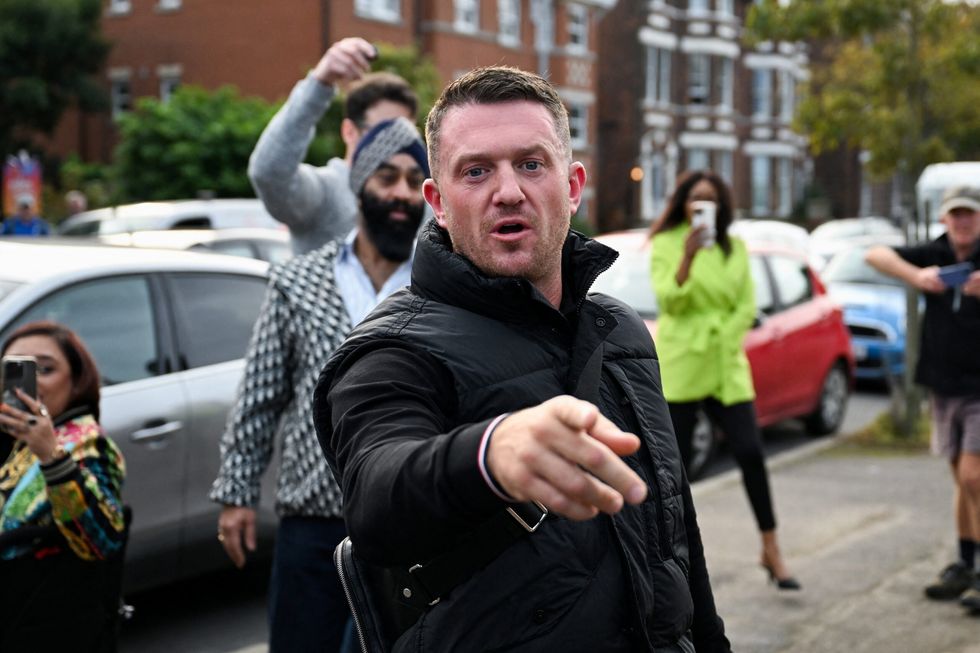by LAUREN CODLING
EATING disorder stereotypes can prevent ethnic minority sufferers from seeking help, new research has shown, as two women with experience of the illnesses called for wider awareness of the misconceptions surrounding it.
According to new statistics shared by eating disorder charity Beat on Monday (25), minorities felt less confident in approaching health professionals for help, in comparison to white respondents.
The data, which was released to mark Eating Disorders Awareness Week, also found that 39 per cent of people believed eating disorders were more common among white people than other ethnicities.
Ballari Conner, 25, suffered from anorexia and bulimia as a child. The Glaswegian, who showed signs of anorexia at the age of 10, was diagnosed three years later, and went into treatment when she was 16.
Now in recovery, Conner believes many think only “white, heterosexual, teenage girls” are affected by the illness. However, she has met sufferers from all different backgrounds and hopes to change the stereotype that is associated with eating disorders.
“My parents had to spend time understanding that anyone can [suffer with an eating disorder],” Conner told Eastern Eye. “It doesn’t matter what colour or background you come from.”
She recalled her family commenting on other people’s appearances when she was young.
As the battle with bulimia of Diana, Princess of Wales, made headlines in the 1990s, Conner remembers her mother saying that eating disorders “did not happen to people from minority backgrounds”.
Her father, too, did not understand the illness – his only prior knowledge of it was the
singer Karen Carpenter’s publicised death, caused by anorexia, in the 1980s.
“He had to learn a lot, as his perception was only white, privileged women could get it,” Conner said.
Laura Shah, 22, is in recovery from anorexia.
She was diagnosed at 15 and has been “getting better slowly”.
Claiming anorexia was her coping mechanism, Shah said most portrayals of people with eating disorders in the media are of “young, pretty, white girls”.
“You don’t get a lot of coverage of ethnic minorities who have experienced eating disorders,” Shah told Eastern Eye.
She added that many people believe the media can influence eating disorders by constantly showing images of thin models or focusing on diet plans.
However, she said there were many other factors, such as a tumultuous family life or mental illness, which could contribute to the disorder.
“It is a massive misconception that you can only have an eating disorder because you’ve been influenced by the media,” Shah, from Suffolk, said.
Conner can relate to this – she believes a person’s background has a lot to do with how or if they develop an eating disorder. Describing her own childhood as “chaotic,” she said her mixed-race, south Asian ethnicity played a large role in her illness.
“I didn’t fit in with a standard western or eastern culture,” Conner said. “At the age of 13, I remember internally feeling like I didn’t fit in anywhere.”
Conner admits that she developed an eating disorder as she felt she lacked control in other areas of her life. There was a divide between her Scottish father and Indian mother’s cultural beliefs and she was struggling to come to terms with her sexuality.
“I realised I was bisexual at quite a young age, and I didn’t know what to do with that,” she said. She began to count calories and weigh herself as a way to cope, but it eventually
turned into a disorder.
“It isn’t like I woke up one day and decided not to eat,” she said. “It crept up on me, gradually.”
According to Beat, about 1.25 million people in the UK have an eating disorder. Anorexia has the highest mortality rate of any mental health illness.
Shah has been a Beat ambassador for two years. She has spoken out about her experiences as she believes putting the issue into the public eye will put people under pressure to act and raise awareness.
She also wants to challenge the belief that an individual is defined by their eating disorder.
“I have anorexia, I’m not anorexic,” she stressed. “The misconception is that it wholly consumes a person, but that person is still a person. They are just suffering from an illness.”



















 The US base at Diego Garcia
The US base at Diego Garcia
 Anti-immigration activist Stephen Yaxley-Lennon, known as Tommy Robinson, gestures before arriving at Folkestone Police Station in Folkestone, Britain, October 25, 2024. REUTERS/Chris J Ratcliffe
Anti-immigration activist Stephen Yaxley-Lennon, known as Tommy Robinson, gestures before arriving at Folkestone Police Station in Folkestone, Britain, October 25, 2024. REUTERS/Chris J Ratcliffe